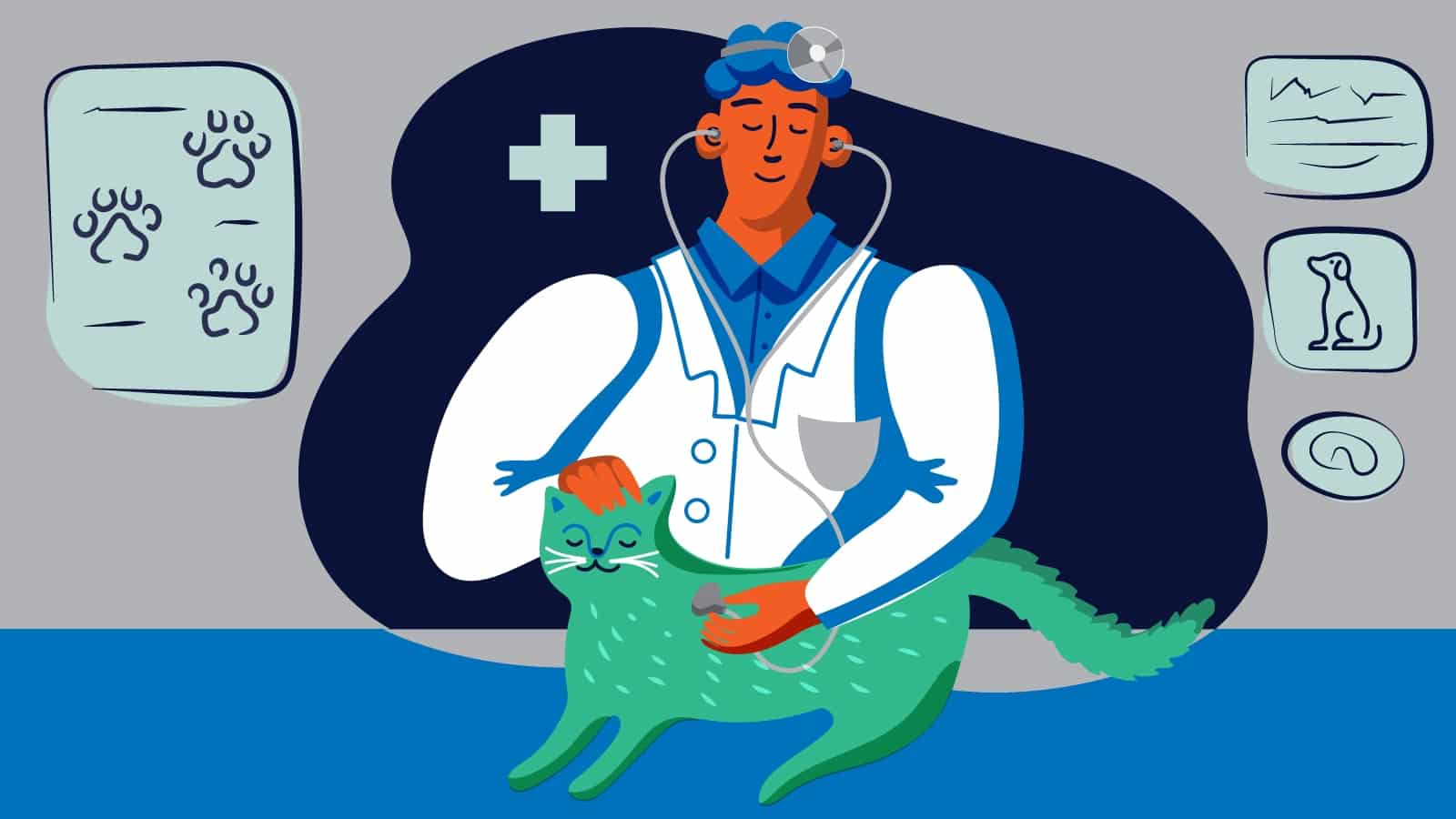RYAN: What is your current status as of June 2016?
STAT Class Graduate: I am a rising third-year veterinary student with a cumulative GPA of 3.3 (equivalent to a B+). I sit comfortably in the top half of my class, and am very much at peace with my academic performance to date.
RYAN: When did you do The STAT Class?
SCG: During winter break between my first and second semesters (December 20—31, 2014).
RYAN: In a nutshell, why did you do The STAT Class?
SCG: My first semester of veterinary school was a disaster. I had never failed anything before in my life, and by the end of the first semester, I had earned a staggeringly-low GPA of 1.6. It felt like my dream of becoming a veterinarian was over before it had begun. There is a high probability that, without The STAT Class, I would not be in vet school today.

RYAN: What was your outcome post-STAT?
SCG: Ryan, I can’t thank you enough for the skills I gained through The STAT Class. STAT permitted me to reclaim my dream. Although I was down at the end of my first semester, I was never out. I never doubted my ability to succeed as a veterinarian, but desperately needed expert advice to overhaul my learning methods to ensure success. Your STAT Class did exactly that. I couldn’t be more grateful. Thank you, Ryan!
RYAN: Awww…you’re going to make my blush!
SCG: 😉
RYAN: Why was your first semester such a disaster?
SCG: I entered veterinary school with the expectation that I’d be able to learn information in the same way that I did during graduate school – via first principles, emphasizing broad concepts instead of minutiae. Much to my chagrin, detail is the name of the game in clinical education, and I was woefully unprepared to assimilate the quantity of information I was expected to learn. I particularly struggled with gross anatomy, from the standpoints of visualization, vocabulary, and memorization. I was also unable to manage the sheer volume of information I was bombarded with every day in PowerPoint-based lectures. There was so much information so fast, I simply didn’t have the time to take notes in the manner to which I was accustomed.
And so I experienced my worst semester of academic performance on record. My cumulative GPA was so low that I was placed on academic probation at the conclusion of Semester 1 in December. This was devastating. Never before had I struggled so hard to achieve and then not been able to secure success. Before the semester’s conclusion, I consulted with many different resources at my institution – faculty, executive administration, and counselors. Although all individuals sympathized with my situation, none could offer me the tactical support I needed to perform in the DVM curriculum. I needed help from an expert who could teach me how to learn at the clinical level. That’s where Ryan and The STAT Program came in.
RYAN: So someone referred you to The STAT Program? That’s awesome!
SCG: Hardly! You were difficult to find! But since I knew I was in trouble long before I received my first semester grades, I had time to do extensive research online, and that’s how I eventually stumbled onto The STAT Program’s website. I wish people would have referred me to you, and I sometimes think, “What if I had never found the STAT Program’s website?” You really need to be easier to find!
RYAN: So you keep telling me! We’re working on it, but slow growth that guarantees quality is the key for me!
SCG: You know I totally agree with you. But, that is not a question!
RYAN: Right…So the good news is, we are definitely getting easier to find, and it is easier for prospective students to identify if they fit the STAT profile. Would you agree with that?
SCG: Absolutely. Once I found the site, and I read the description of students whom STAT had helped to rectify their performance challenges, they sounded just like me. That’s when I contacted you. We had a great conversation, and I signed up for the winter STAT class between fall and spring semesters (winter ‘break’ class).
RYAN: So you were excited to drive 8+ hours to hang out with me over Christmas and New Year’s eve?
SCG: As you like to explain, that is literally the ONLY time students in my position have to stop, take a breath, and redesign our study methods. By offering this semester break course, you prevent people like me and most of the students who were in my class, from ever failing. So to me, that was all worth the time cost, and it paid off handsomely!
RYAN: So how would you describe your STAT Class experience?
SCG: The STAT Class made a night and day difference in my performance. By utilizing STAT techniques (and bringing to bear the work ethic I already possessed), I raised my semester GPA from a 1.6 to a 3.8, in the course of one semester. Once I began to see academic success, veterinary school became a joy (as opposed to a crucible of anxiety). I now have the confidence that I can be successful in the curriculum. Confidence is power—it makes all the difference in the world between success and failure. Although I saw dramatic improvements in my semester performance (since completing STAT, my semester GPAs have fluctuated between 3.6 and 3.8), it is very difficult to raise one’s cumulative GPA from a low starting point. Given that I started out at a 1.6, I am quite proud of the fact that I’ve successfully raised that number to 3.3 over the course of subsequent semesters. Plus, I’ve still got two semesters of graded work yet to complete! By the conclusion of year 3, I am confident that making the top third of my class is a realistic goal
RYAN: That is such a fun and awesome story. What advice would you give someone who is considering The STAT Class?
SCG: Should anyone decide that The STAT Class is appropriate for your particular academic challenges, Ryan will provide you with an arsenal of tools—from memorization strategies, to time management methods, to how to organize that dense volume of lecture material, all of which contribute to success. Many of his ideas are novel—you likely won’t have had exposure to them previously. They take practice to use effectively, and must be customized to each student’s unique situation upon graduation from The STAT Class (which takes a little less than two weeks). Don’t give up—struggle through the learning process (complete the assigned exercises – and then some!), and invest in your own success. You’ll be surprised where you end up on the other side.
RYAN: What’s another STAT Class tidbit you can share?
SCG: I should also note The STAT Class was also a lot of fun. I was not expecting that – I honestly thought that it would be a drag! It was great to interact with a bunch of smart people from across the country in different fields—all medicine, but mostly human medical students from West Virginia, New York, Indiana, North Carolina, Kentucky, and more—who were experiencing similar challenges to myself. That, and Ryan is very dynamic as a teacher. He’ll always be my pop culture hero 🙂
Ryan: Can you recall any specific pop culture references?
SCG: When you taught us about Practiced Retrieval, you told a funny story about how Yoda from Star Wars is a terrible teacher who clearly did not understand the importance of practiced retrieval….that was pretty good.
Ryan: Yoda really is a terrible teacher if you assess his methods and, of course, his outcomes….
SCG: You do a good job of not coming across so stern and professorial, and then you say stuff like that! I’m joking with you. It’s all part of what makes the class so great.
RYAN: Part of my teaching skillset is knowing when to be intense and when to share my deeply nerdy knowledge. It’s all part of my master STAT plan! At any rate, it has been about a year and a half since you finished The STAT Class. Where are you now?
SCG: I am spending my summer at a top-tier medical school completing a three-month externship in Laboratory Animal Medicine, my chosen field of specialization. I was granted this award via a competitive application process. Only a handful of scholarships are awarded annually, and applications are submitted by veterinary students from across the country. I likewise received national recognition from field-specific professional societies indicating my potential in the field. For one of these honors, only 5 are awarded nationally. Typically, the honor is bestowed upon graduating seniors. I received the award at the conclusion of my second year. For each of these competitions, I was required to submit a transcript. I never hide the fact that I struggled in my first semester. I address the issue, directly but briefly, and move on to explain how I turned the situation around. It’s difficult to resist a ‘come from behind’ story. Who doesn’t love to root for the underdog who ends up on top? If you had asked me at the end of first semester if my story would have a happy ending, I would have looked at you with dismay. 1.5 years later…I’m doing just fine, and have complete confidence that this success will continue in the future.
RYAN: I am so happy for you and proud of the work you put in to actualize your dream. Thanks so much, and keep me updated!
SCG: Of course! And thanks again!
This interview has been condensed and edited
